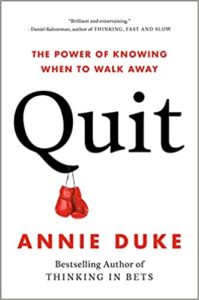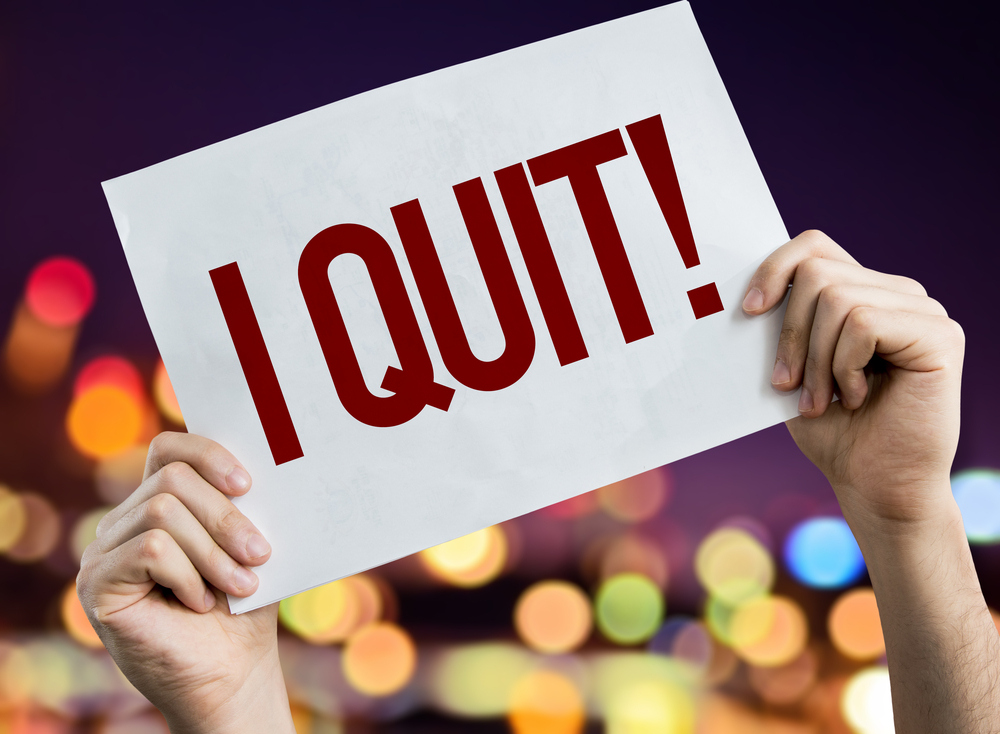
In this episode, Annie Duke discusses her book, Quit: The Power of Knowing When to Walk Away with EconTalk host Russ Roberts, who of course, asks her great questions. “The opposite of a great virtue is also great virtue,” is a recurring theme that is grappled with as the two discuss examples of grit, perseverance and when, why, and how to quit.
It’s impossible to listen to this conversation and not consider your own experiences. Can you easily identify “kill criteria” when evaluating a new idea? How does cultural baggage influence your ability to push through pain? What is the opportunity cost to saying no? We hope you start, finish, and enjoy this episode! Perhaps you will share with us what you’ve quit lately?
1- Why does Annie Duke view quitting as a calibration issue? How do you determine the right time to quit or to stick with things?
2- To what extent do the Everest hiker and the startup employer stories justify quitting as a moral imperative? Are there obligations beyond self-preservation and owing others that might be considered when calling it quits? Explain.
3- Duke suggests throughout her story of the ants that we might too easily say no, or worse, fill our time with hobbies and more that don’t allow us to be available for new opportunities. Are you concerned that you might have missed out on some fortunate stroke of serendipity?
4- Richard Thaler claims that we do not like to close mental accounts in the losses. How do Roberts’ Dad’s words, “Don’t quit, finish what you plan,” support this line of thinking while challenging Duke’s premise about the problem with short-term goals?
5- We take into account the resources that we’ve already spent in deciding whether to continue and spend more. Duke claims that amateur poker players really care about money already spent (in the pot). Do we get better at recognizing the sunk cost effect as we progress in life?
[Editor’s Note: This Extra was originally published on July 16, 2023.]


READER COMMENTS
Mike
Jul 16 2023 at 7:31pm
Pot money in poker is not really a traditional dunk cost because it determines how much you can win with subsequent bets. So, considering “pot odds” is rational.
Alice Temnick
Jul 17 2023 at 2:10pm
Point taken- I didn’t realize that.
Comments are closed.